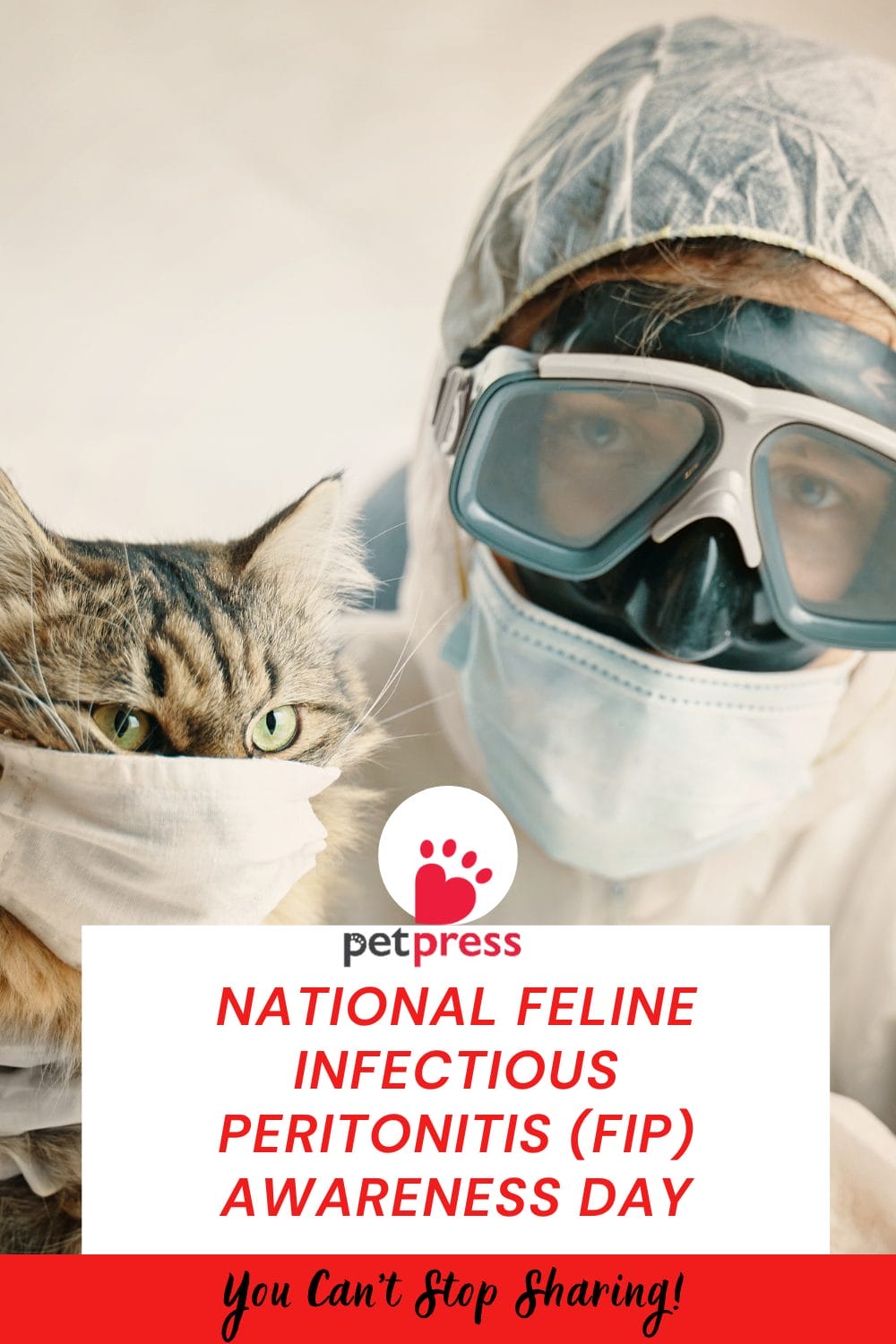
National Feline Infectious Peritonitis (FIP) Awareness, Research, and Education Day serves as a dedicated day celebrated on November 18th to shed light on FIP, a complex and often fatal viral disease affecting cats worldwide.
This day focuses on raising awareness, supporting ongoing research, and educating cat owners, veterinarians, and the general public on FIP’s impact, symptoms, and the urgent need for a cure.
With a global community of cat lovers and advocates rallying together, this day provides a platform to address FIP’s challenges and encourage collaborative efforts in combating this severe disease.
History of National Feline Infectious Peritonitis (FIP) Awareness Day
FIP was first described in the 1960s, though it had been affecting domestic and wild cats long before then.
The disease, caused by certain mutations in the feline coronavirus (FCoV), has presented a unique and difficult challenge in veterinary medicine, as it can quickly progress to fatal outcomes in affected cats.
In recent decades, veterinarians and researchers have made significant strides in understanding FIP, though finding a cure remains complex.
National Feline Infectious Peritonitis (FIP) Awareness, Research, and Education Day emerged as a way to address these ongoing challenges.
The event was established by feline health advocates and veterinary organizations to rally global awareness and drive interest in research funding.
Through this day, FIP advocates work to bring together the public, researchers, and organizations to support affected cats, offer guidance for caregivers, and ultimately, find a cure.
Significance of National Feline Infectious Peritonitis (FIP) Awareness Day
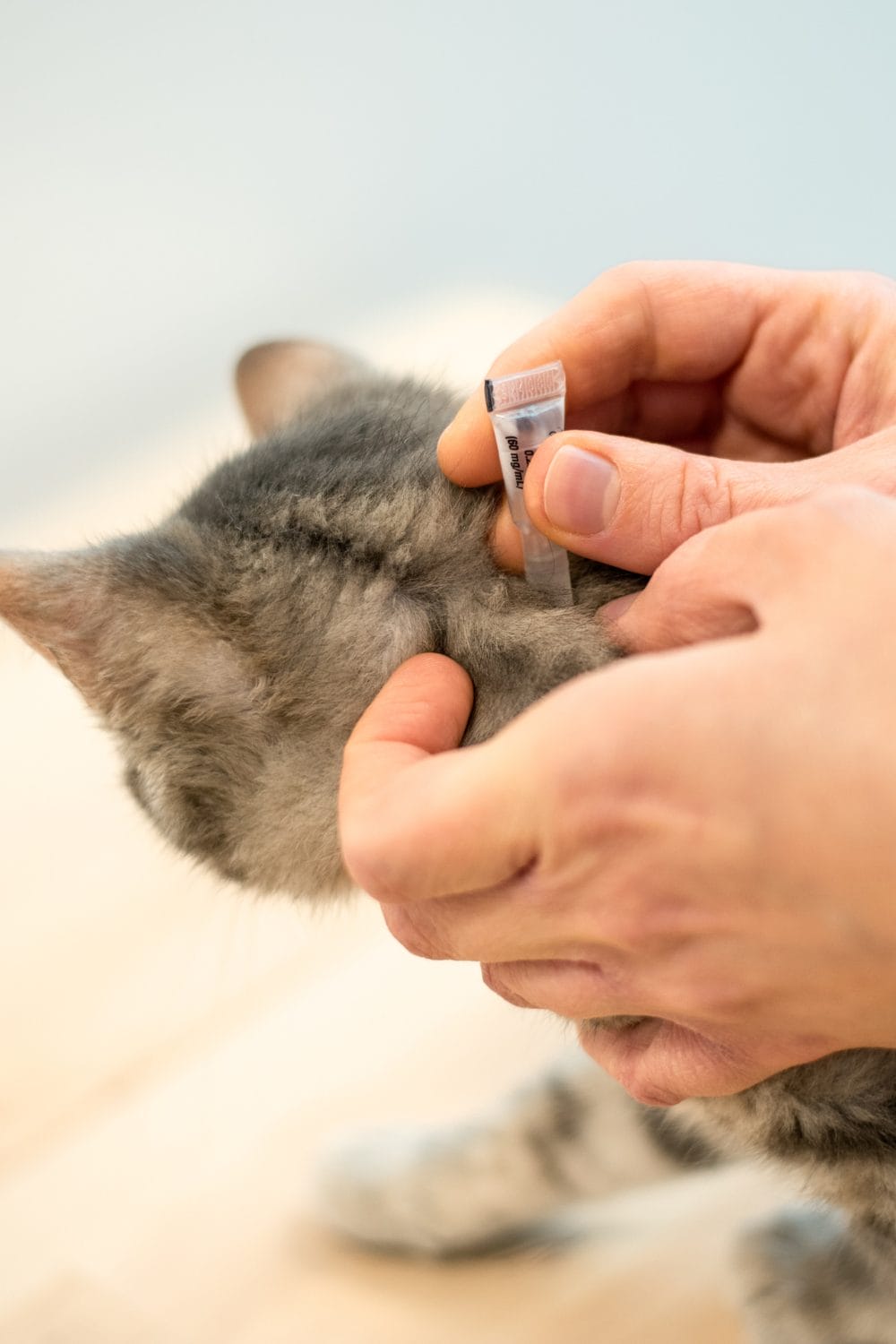
FIP is a serious condition with a historically high mortality rate, impacting both domestic and wild cats.
National FIP Awareness Day underscores the urgent need to address this disease, offering hope to cat owners and caregivers.
This day holds great importance for several reasons:
- Raising Awareness: FIP is relatively unknown to the general public, despite its severe impact on cats. National FIP Awareness Day helps increase understanding of the disease and its symptoms.
- Promoting Research: Research into FIP treatments and possible vaccines has shown progress, and this day emphasizes the need for continuous support for research funding.
- Educational Outreach: Educating cat owners and veterinarians about early signs and symptoms can save lives. The earlier FIP is detected, the better the chances of managing the disease effectively.
- Building a Support Network: The day encourages the community to support families and caregivers dealing with FIP diagnoses, offering compassion and resources.
Facts About National Feline Infectious Peritonitis (FIP) Awareness Day
- Date: National FIP Awareness Day is observed on a specific day annually, typically chosen to coincide with international feline health events.
- Caused by Coronavirus Mutation: FIP results from a mutation of the feline coronavirus, which affects around 40-80% of cats but only progresses to FIP in a small percentage.
- Two Main Forms: FIP manifests as either wet (effusive) or dry (non-effusive) forms, each with different symptoms but equally serious implications.
- Vaccination Efforts: Though a definitive vaccine for FIP has been elusive, the day highlights advancements in preventative research.
- Increasing Survival Rates: With recent therapeutic advances, survival rates are improving, underscoring the importance of supporting research efforts.
How to Celebrate National Feline Infectious Peritonitis (FIP) Awareness Day
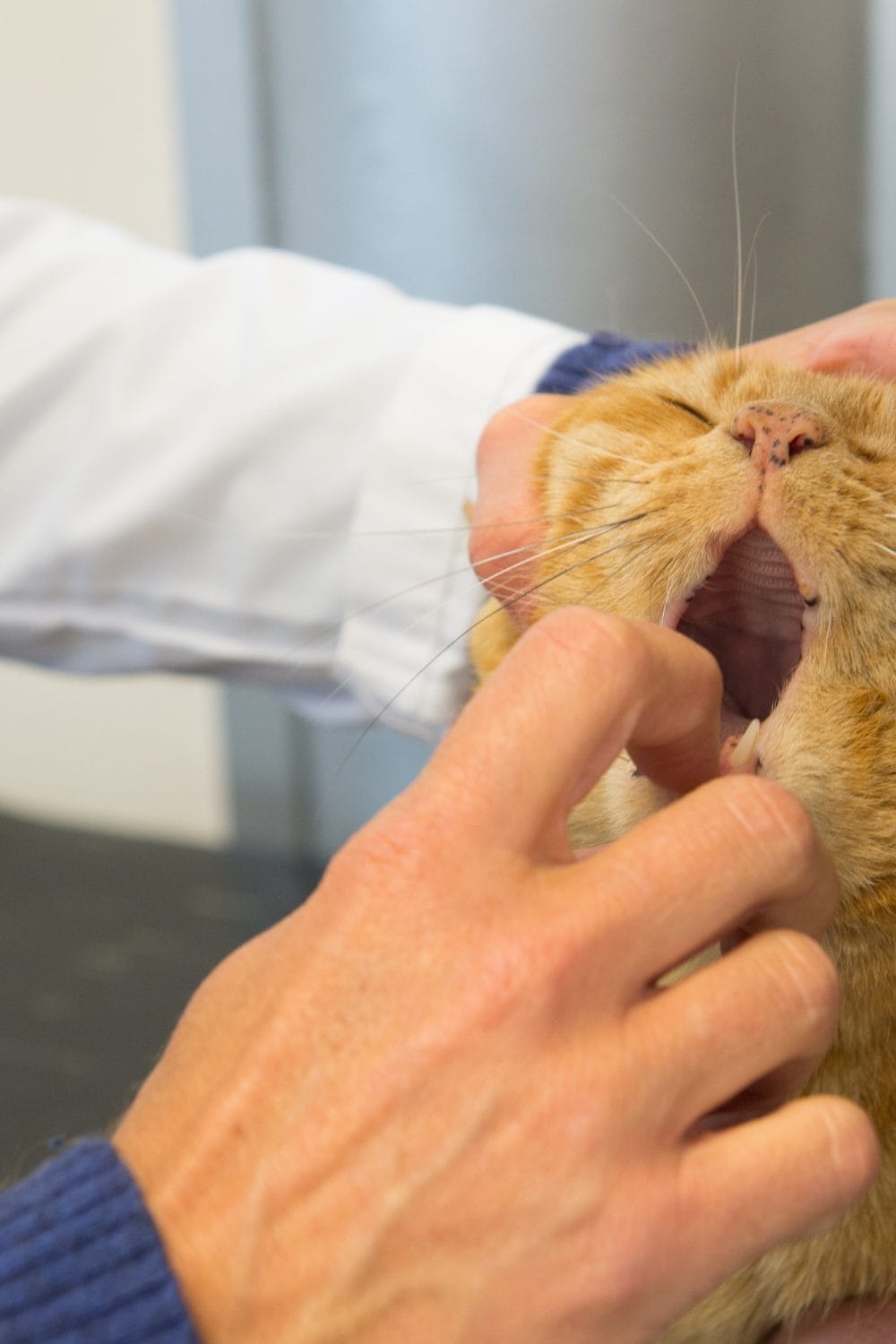
Raise Awareness
Share information on FIP with friends, family, and through social media. Highlight common symptoms and the need for early diagnosis.
Donate to FIP Research
Support organizations dedicated to FIP research by donating or fundraising. These funds are essential for advancing treatment and vaccine development.
Participate in Events
Attend webinars, workshops, or virtual events hosted by feline health organizations. These events are often held in conjunction with National FIP Awareness Day to educate and engage the public.
Support Cat Owners
Offer encouragement to cat owners dealing with FIP. Connect with support groups and forums where people can share their experiences and advice.
Spread Educational Material
Distribute pamphlets or flyers in local pet stores, veterinary clinics, and animal shelters. Many animal lovers are unaware of FIP, and these resources can be instrumental in spreading knowledge.
Recognizing the Signs of Feline Infectious Peritonitis (FIP)
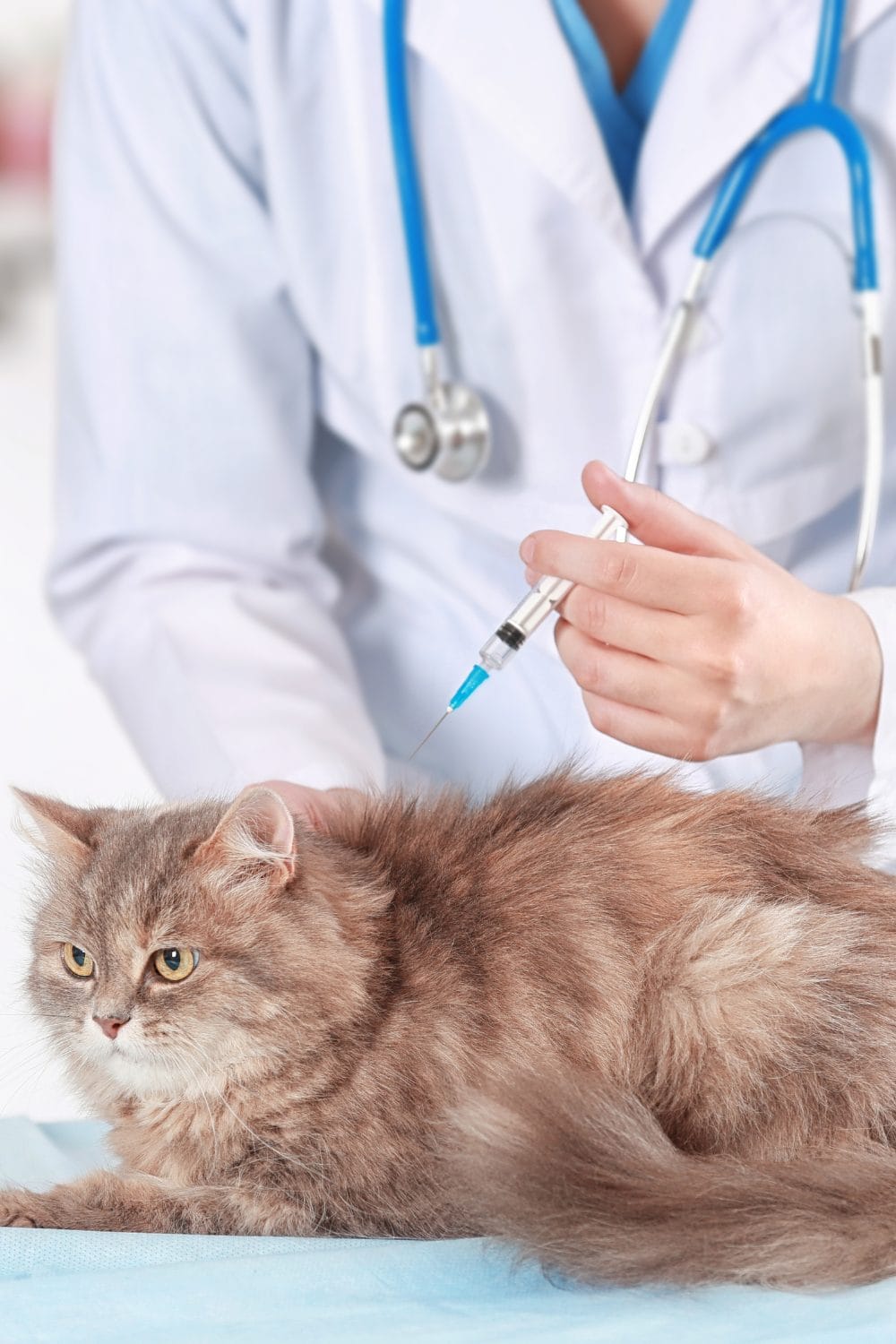
FIP is a challenging disease because its early signs of health problems can be mistaken for other illnesses. Key symptoms to watch for include:
- Persistent fever unresponsive to antibiotics
- Loss of appetite and weight loss
- Lethargy and reluctance to move or play
- Swollen abdomen (indicative of the effusive form of FIP)
- Respiratory issues, such as labored breathing
- Eye inflammation and neurological signs in the dry form
If your cat exhibits these symptoms, consult a veterinarian as soon as possible. Early intervention and supportive care can be critical in managing FIP.
Key Points to Remember
- Prevalence: FIP is relatively rare but often fatal, particularly in multi-cat environments.
- Transmission: FIP is not contagious but results from a mutation of the common feline coronavirus.
- Early Diagnosis: Recognizing symptoms early and seeking veterinary care promptly improves the chances of effective management.
- Supportive Care: FIP requires compassionate, supportive care from caregivers, as it can be emotionally and financially demanding.
- Hope in Research: New therapeutic options and continued research bring hope for improved treatments and eventual prevention.
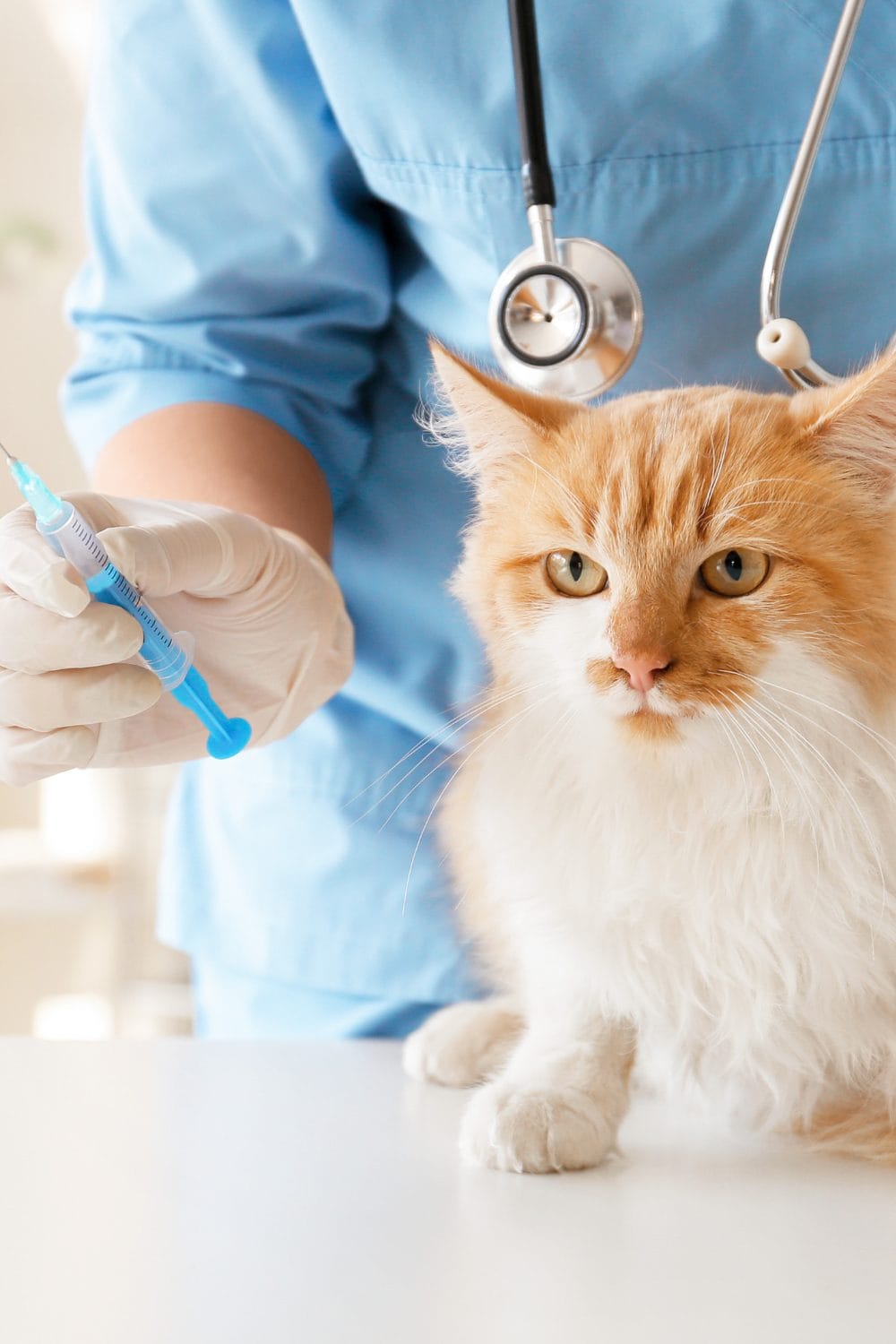
Conclusion
National Feline Infectious Peritonitis (FIP) Awareness, Research, and Education Day is a vital day that unites cat lovers, researchers, and veterinarians in the fight against a challenging disease.
This day reminds us of the importance of knowledge, compassion, and perseverance in supporting our feline companions.
Through increased awareness, committed research funding, and community support, the vision of a future where FIP is preventable and curable comes closer to reality.
Every cat owner, vet, and advocate has a role to play on this day—whether by spreading awareness, donating to research, or offering support to those impacted by FIP.
By coming together, we can make strides toward a healthier and safer world for cats.
Frequently Asked Questions
Feline Infectious Peritonitis (FIP) is a viral disease caused by a mutation of the feline coronavirus. While the coronavirus is common in cats, only a small percentage develop FIP, a condition that can progress rapidly and is often fatal.
Currently, there is no definitive cure for FIP, though recent therapeutic developments offer hope and have shown promise in extending the lives of affected cats. Research into potential cures and preventative vaccines is ongoing.
While there is no guaranteed prevention, maintaining a clean environment, avoiding overcrowding, and ensuring cats are healthy can reduce the risk of coronavirus mutation. Routine veterinary checkups are also essential for early detection and treatment.
The symptoms of FIP can vary but typically include fever, weight loss, lethargy, and abdominal swelling. There are two forms of FIP (wet and dry), each with specific symptoms. Consulting a veterinarian is essential for an accurate diagnosis.
You can support National FIP Awareness Day by spreading awareness, donating to FIP research organizations, participating in educational events, and offering support to those affected by FIP. Sharing information on social media and within your community can also make a significant impact.
- Dogs Pooping Blood: A 2026 Guide for Concerned Pet Parents - February 23, 2026
- How to Celebrate a Dog’s First Birthday on a Budget: 2026 Guide - February 18, 2026
- Best Shampoo for Sensitive Skin Dog Grooming: 2026 Guide - February 12, 2026


GIPHY App Key not set. Please check settings